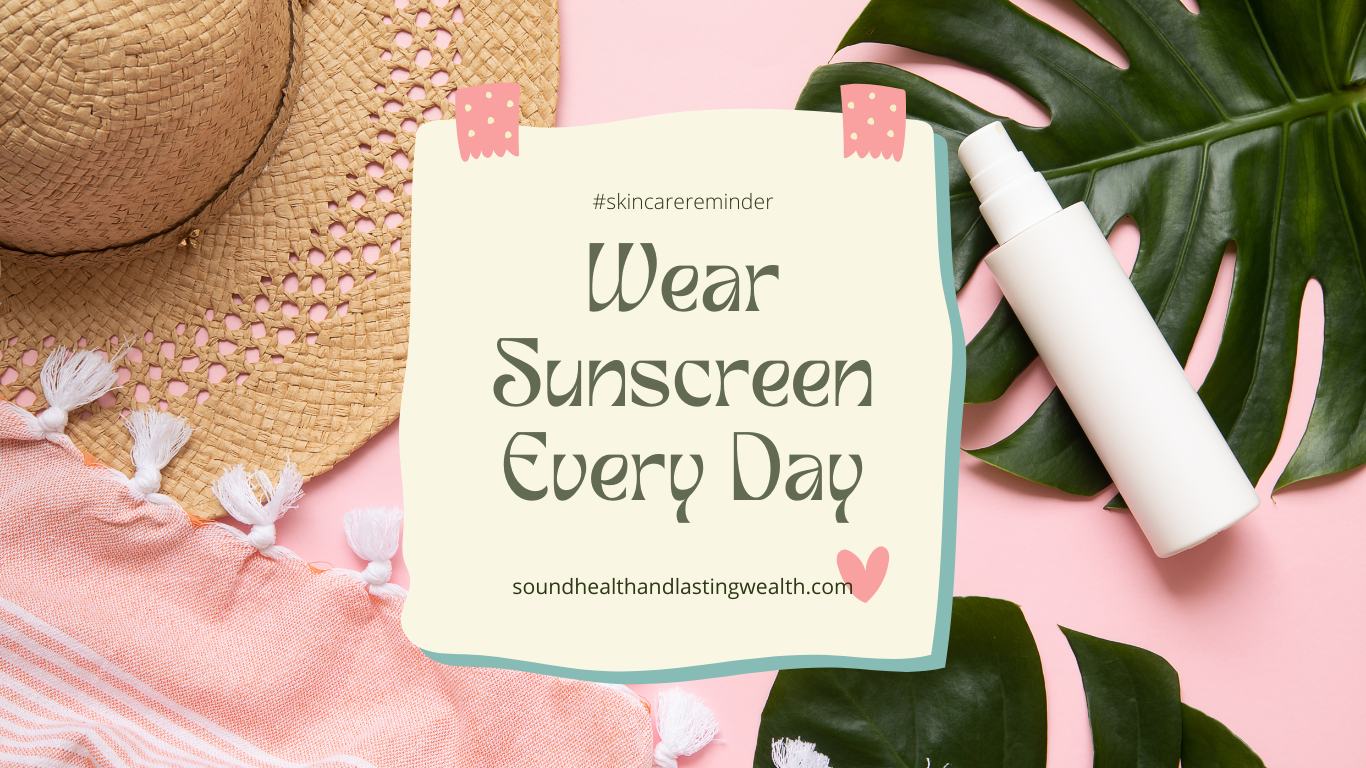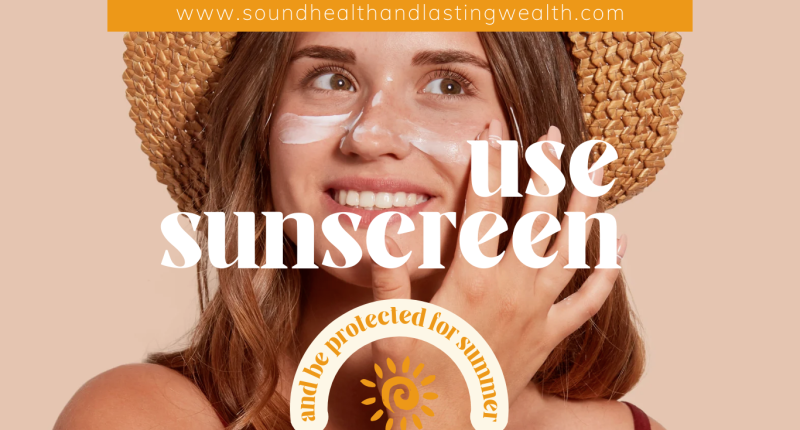Sunscreen is commonly recognized for its protective qualities against harmful UV rays and its anti-aging properties. However, its importance in managing acne-prone skin is often overlooked. Many people with acne may avoid sunscreen due to misunderstandings about its potential to exacerbate breakouts. Yet, selecting the appropriate sunscreen can offer remarkable advantages for those dealing with acne. In this article, we will highlight eight vital benefits of sunscreen for acne-prone skin, drawing on recent research and expert opinions.

Why Should You Prioritize Sunscreen?
You might wonder why sunscreen deserves a spot in your daily skincare routine. The truth is, its benefits extend far beyond mere sun protection. While summer may prompt a rush to stock up on sunscreen, the reality is that daily application is crucial year-round, regardless of the season. UV exposure can occur even on cloudy days or during winter months, making SPF a year-round necessity.
Dr. Nadir Qazi, a board-certified physician, emphasizes the significance of sunscreen, stating, “Sunscreen is the most important skin care product to maintain long-term skin health. It is vital in preventing signs of aging from appearing on the skin. Fine lines, wrinkles, and sunspots are all symptoms that can arise due to a lack of proper sunscreen application.” Although the benefits of sunscreen may not be immediately visible, consistent use will yield significant rewards over time.
This article will explore the myriad benefits of sunscreen, guide how to use it effectively and offer insights into how often it should be applied. Let us have a look at the top 8 interesting reasons why you should wear sunscreen throughout the year:
1. Protection from Harmful UV Rays
Ultraviolet (UV) rays from the sun can exacerbate acne and cause skin damage. According to the American Academy of Dermatology (AAD), UV exposure can lead to increased inflammation and worsen existing acne lesions. Sunscreen acts as a barrier against these harmful rays, preventing sunburn and further skin irritation that can trigger breakouts.
2. Prevention of Post-Inflammatory Hyperpigmentation (PIH)
After an acne breakout, many individuals experience post-inflammatory hyperpigmentation, which manifests as dark spots on the skin. UV exposure can darken these spots, making them more noticeable. A study highlighted that daily use of sunscreen can significantly reduce the risk of PIH by protecting the skin from UV-induced damage. By applying sunscreen, you can help maintain an even skin tone and prevent the worsening of acne scars.
3. Reduction of Inflammation
Certain sunscreen ingredients, such as zinc oxide and niacinamide, possess anti-inflammatory properties. These components can help soothe irritated skin and reduce redness associated with acne. Research indicates that zinc oxide not only protects against UV rays but also helps diminish acne-causing bacteria, making it a beneficial addition to your skincare routine.
4. Prevention of Scarring
Using sunscreen can help protect healing acne lesions from sun damage. When the skin is healing, it is particularly vulnerable to UV rays, which can lead to scarring and prolonged discoloration. By shielding your skin with sunscreen, you can minimize the risk of scarring and promote a smoother complexion over time.
5. Support for Acne Treatments
Many acne treatments, such as retinoids and certain exfoliants, increase the skin’s sensitivity to sunlight. This heightened sensitivity can lead to sunburn and further irritation. Dermatologists recommend using sunscreen daily to protect the skin while undergoing acne treatment regimens. Incorporating sunscreen into your routine can help ensure that your skin remains protected and can heal effectively.
6. Maintenance of Skin Health
Regular use of sunscreen contributes to overall skin health by preventing the breakdown of collagen and elastin, essential proteins that keep the skin firm and youthful. UV exposure can accelerate skin aging and lead to the development of fine lines and wrinkles, which can be particularly concerning for those with acne-prone skin. By protecting your skin with sunscreen, you can maintain its elasticity and appearance.
7. Non-Comedogenic Formulations
Choosing the right sunscreen is crucial for those with acne-prone skin. Non-comedogenic and oil-free formulations are designed to prevent clogged pores, which can trigger breakouts. Look for sunscreens that contain calming ingredients like lactic acid and white tea, which can soothe the skin while providing sun protection. Many modern sunscreens are lightweight and designed to be worn under makeup, making them easy to incorporate into your daily routine.
8. Enhanced Overall Appearance
Daily sunscreen use not only protects against UV damage but also contributes to a healthier and more radiant complexion. By preventing sun damage and reducing the risk of hyperpigmentation, sunscreen helps maintain a clear and youthful appearance. This is particularly important for individuals with acne-prone skin, as maintaining an even skin tone can boost confidence and improve overall skin health.
How to Use Sunscreen
To maximize the benefits of sunscreen, follow these steps:
- Choose the Right Product: Opt for a broad-spectrum sunscreen with at least SPF 30 that is labeled as non-comedogenic and oil-free.
- Apply Generously: Use about a nickel-sized amount for your face and ensure even coverage.
- Timing is Key: Apply sunscreen as the last step in your skincare routine, at least 15 minutes before sun exposure to allow it to absorb properly.
How Often to Use Sunscreen
Using sunscreen is a crucial part of protecting your skin from harmful UV rays, which can lead to sunburn, premature aging, and even skin cancer. However, many people are unsure about how often they should reapply sunscreen for optimal protection. This guide provides clear recommendations based on expert advice and research.
Daily Application
Sunscreen should be applied daily, regardless of the weather or your plans. UV rays can penetrate clouds and glass, meaning you are still at risk even when indoors or on cloudy days. Dermatologists recommend applying sunscreen to all exposed areas of skin, including your face, neck, and ears, every day.
General Reapplication Guidelines
- Every Two Hours: For most daily activities, it is recommended to reapply sunscreen every two hours. This guideline ensures that your skin remains protected throughout the day, especially if you are outdoors or near windows where UV rays can penetrate.
- Every 40 to 80 Minutes When Active: According to the Centers for Disease Control and Prevention (.gov), If you are swimming, sweating, or engaging in activities that may cause your sunscreen to wear off, you should reapply every 40 to 80 minutes. Water-resistant sunscreens may offer some protection for a longer duration, but they still require frequent reapplication to maintain effectiveness.
Special Situations
- Indoors: If you are spending the entire day indoors and away from windows, you can extend the time between reapplications to every four to six hours. However, if you are near windows or skylights, consider reapplying every two hours to ensure adequate protection.
- Before Going Outside: Always apply sunscreen 15 to 30 minutes before heading outdoors. This allows the product to absorb into the skin and provide effective protection when you are exposed to sunlight.
How Much Sunscreen to Use
To achieve the full protective benefits of sunscreen, it’s essential to use the right amount. The general guideline is to use about one ounce (approximately a shot glass full) for your entire body and a quarter-sized amount for your face. Many people underestimate the amount needed, which can lead to inadequate protection.
Importance of Reapplication
Reapplying sunscreen is critical because no sunscreen can provide all-day protection. Factors such as sweating, swimming, and even towel drying can reduce the effectiveness of sunscreen. Additionally, the SPF rating indicates the level of UVB protection but does not extend the duration of effectiveness. For example, an SPF 30 sunscreen does not mean you can go 30 times longer without reapplying; it simply indicates the level of protection against UVB rays.
Side Effects of Sunscreen
While sunscreen is essential for protecting the skin from harmful UV rays and preventing skin damage, it is not without its potential side effects. Understanding these side effects can help you make informed choices about the products you use. Here, we explore the common side effects associated with sunscreen, the ingredients that may cause them, and tips for minimizing adverse reactions.
1. Allergic Reactions
One of the most common side effects of sunscreen is allergic reactions. Ingredients such as fragrances, preservatives, and certain chemical UV filters can trigger skin irritation, leading to symptoms like redness, swelling, dryness, and itching. Some individuals may experience severe reactions, including rashes and intense itching. Ingredients like PABA (para-aminobenzoic acid), although less common in modern formulations, have been known to cause allergic reactions and are being phased out of many products. To mitigate the risk of allergic reactions, consider using sunscreens labeled as “hypoallergenic” and those that contain zinc oxide, which is less likely to cause allergies. If you are uncertain about how your skin will react, conducting a patch test before full application is advisable.
2. Worsening of Acne
For individuals with acne-prone skin, certain sunscreens can exacerbate breakouts. Heavy formulations or those containing comedogenic ingredients may clog pores, leading to increased acne. It is crucial to select non-comedogenic and oil-free sunscreens specifically designed for acne-prone skin. Avoid using body sunscreens on the face, as they tend to be heavier and can contribute to breakouts.
3. Eye Irritation
Accidental contact with the eyes can cause significant discomfort, including burning, irritation, and temporary sensitivity to light. Chemical sunscreens, in particular, may pose a higher risk of eye irritation. If sunscreen gets into your eyes, rinse them thoroughly with cool water. In severe cases, seek medical attention if irritation persists.
4. Skin Sensitivity
Some sunscreen ingredients can increase skin sensitivity, particularly in individuals with pre-existing skin conditions. This heightened sensitivity may lead to reactions such as burning, itching, or stinging upon application. If you notice these symptoms, it is advisable to wash off the sunscreen and discontinue use. Consult a healthcare professional for recommendations on alternative products.
5. Dryness and Tightness
Certain formulations may cause the skin to feel dry or tight after application. This effect can be exacerbated by the presence of alcohol or other drying agents in some sunscreens. If you experience dryness, look for hydrating formulations that contain moisturizing ingredients like glycerin or hyaluronic acid to help maintain skin hydration.
6. Hormonal Disruption
Some chemical sunscreen ingredients, such as oxybenzone and octinoxate, have raised concerns regarding their potential hormonal effects. Studies suggest that these chemicals can be absorbed into the bloodstream and may disrupt endocrine function, leading to issues such as altered hormone levels and reproductive health concerns. Although more research is needed, many consumers prefer mineral-based sunscreens (containing zinc oxide or titanium dioxide) as safer alternatives.
7. Pus-Filled Blisters
In rare cases, individuals may develop pus-filled blisters or weeping lesions, particularly in sun-exposed areas. This condition can be a sign of irritant contact dermatitis or an allergic reaction to sunscreen ingredients. If you notice such symptoms, it is crucial to seek medical advice promptly.
Tips to Avoid Sunscreen Side Effects
To minimize the risk of adverse reactions when using sunscreen, consider the following tips:
- Choose Wisely: Select sunscreens that are labeled as non-comedogenic, hypoallergenic, and suitable for sensitive skin.
- Patch Test: Always perform a patch test on a small area of skin before applying a new sunscreen product to ensure you do not have an adverse reaction.
- Avoid Heavy Formulations: For acne-prone or oily skin, opt for lightweight, gel-based, or spray sunscreens that are less likely to clog pores.
- Consult a Dermatologist: If you have a history of skin sensitivities or allergies, consult a dermatologist for personalized recommendations on suitable sunscreen products.
- Rinse Off: If you experience irritation or discomfort after applying sunscreen, wash it off immediately and discontinue use.
FAQs
Q. Does sunscreen cause acne?
No, using the right sunscreen does not cause acne. However, some formulations may clog pores, so it’s essential to choose non-comedogenic options.
Q. What is the best type of sunscreen for acne-prone skin?
Look for lightweight, oil-free, and non-comedogenic sunscreens that contain soothing ingredients like zinc oxide or niacinamide.
Q. Can sunscreen help with existing acne scars?
While sunscreen does not treat acne scars, it can prevent them from darkening and becoming more noticeable due to sun exposure.
Conclusion
Incorporating sunscreen into your daily skincare routine is crucial for individuals with acne-prone skin. The benefits of sunscreen extend beyond sun protection, offering significant advantages in managing acne and preventing further skin issues. By choosing the right formulation and applying it consistently, you can protect your skin and promote a clearer, healthier complexion.
ALSO READ: How to lighten dark armpits and knees fast at home









